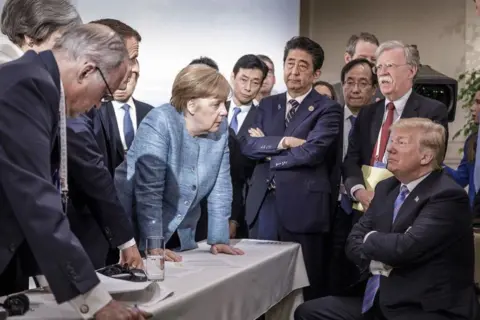- Economy
5 retirement withdrawal steps to make your money last longer
时间:2010-12-5 17:23:32 作者:International 来源:U.S. 查看: 评论:0内容摘要:On Thursday, a member of Kabila’s entourage told AFP that though no formal alliance existed between his party and M23, both shared the “same goal” of ending the rule of President Felix Tshisekedi.On Thursday, a member of Kabila’s entourage told AFP that though no formal alliance existed between his party and M23, both shared the “same goal” of ending the rule of President Felix Tshisekedi.
The companies that make the products have been either unwilling or unable to clamp down on these unofficial distribution networks.Russia’s full-scale invasion of Ukraine prompted an international backlash that, by some estimates, resulted in the country becoming the most sanctioned in the world.

Russia also experienced a huge voluntary exodus of brands, comparable in scale only to the boycott of South Africa that was credited with hastening the fall of apartheid.More than 1,300 companies announced they would exit Russia or curtail their operations there, according to a tally by the Yale School of Management.Russia’s economy, however, has weathered the pressure campaign better than expected and there is a growing acknowledgement that the expectations sanctions would bring Moscow to heel were misplaced.

Russia’s gross domestic product (GDP) declined by only 2.1 percent in the first year of the war, according to the International Monetary Fund (IMF) – compared with a predicted 8.5 percent contraction – and has been growing ever since.Russians’ real disposable income decreased by just 1 percent compared with 2021, according to an analysis by the Brussel-based think tank Bruegel, less than the decline seen during the COVID-19 pandemic.

At least initially, imports took a considerable hit.
According to estimates by Brugel, the value of all imported goods fell by half in the first four months after the invasion compared with the four months prior.Furthermore, there may be more voters in the second round: Voter turnout for the first round was 67.3 percent. Palade added: “The second round will be decided by young people, but also by those who did not vote in the first round. It is an open question whom they will support.”
There is no confusion, no complexity. Just children incinerated in their sleep while the world watches and does nothing.Dr Alaa al-Najjar, a 36-year-old paediatrician and mother of 10, spent the morning of Friday, May 23, doing what she had devoted her life to: Saving children at Gaza’s Nasser Hospital. By nightfall, she was no longer a healer but a mourner, cradling the charred, dismembered remains of her own children – Yahya, Rakan, Ruslan, Jubran, Eve, Revan, Sayden, Luqman, and Sidra. Seven were confirmed dead. Two remain buried beneath the rubble, including her youngest, six-month-old Sayden, still asleep in his crib when Dr al-Najjar kissed him goodbye that morning.
In just one Israeli air strike – in just one minute – her entire world was annihilated.Her husband Hamdy, 40, also a doctor, and their son Adam, 11, are in the ICU, their lives hanging by a thread inside Gaza’s disintegrating health system – not by chance but by design. The repeated, intentional targeting of hospitals and clinics has left Gaza’s healthcare infrastructure in ruins. In just one week, 12 of Gaza’s most dedicated nurses were killed, one by one.
- 最近更新
- 2025-07-07 07:18:49Video Duration 28 minutes 44 seconds play-arrow28:44
- 2025-07-07 07:18:49AOLThe best soundbars for seniors in 2025
- 2025-07-07 07:18:49Video Duration 24 minutes 43 seconds play-arrow24:43
- 2025-07-07 07:18:49AOLAmazon Prime Day is in two weeks, but they launched these 25 deals early
- 2025-07-07 07:18:49AOLAmazon Prime Day is in two weeks, but they launched these 25 deals early
- 2025-07-07 07:18:49Cooper Flagg taken by the Dallas Mavericks with the No. 1 pick in 2025 NBA Draft
- 2025-07-07 07:18:49Thu Jun 26, 2:15 PM EDTFDSMWCHC46-33STL44-36
- 2025-07-07 07:18:49AOLThe best smart speakers for seniors of 2025, tested by AOL
- 热门排行
- 2025-07-07 07:18:49An accused woman skips her pedicure, kills her ex-husband
- 2025-07-07 07:18:49AOLAmazon Prime Day is in two weeks, but they launched these 25 deals early
- 2025-07-07 07:18:49according to the Senior Citizens League
- 2025-07-07 07:18:49alternatives to cable television
- 2025-07-07 07:18:49Aquasonic Black Series Ultra Whitening Toothbrush$38$50Save $12with coupon
- 2025-07-07 07:18:49Russian strike kills 5 in Ukraine, including a 1 year old, hours after Trump calls Putin
- 2025-07-07 07:18:49Bill Nighy, Mathew Horne, WWE’s Jordynne Grace Board Fantasy Film ‘Welcome to Paradis…
- 2025-07-07 07:18:49Thu Jun 26, 3:10 PM EDTCOLRLAD49-31COL18-61
- 友情链接
- Chile's salmon farms hope for calmer waters Adidas says customer data stolen in cyber attack Artist's 'heartbreak' over AI generated images US green energy firms brace for federal funding cuts Mars phases out controversial colour additive in Skittles After its third failed mission - what next for SpaceX? Judge in Diego Maradona case accused of behaving like an 'actress' Trump's frantic week of peace brokering hints at what he really wants Andrew and Tristan Tate will return to UK to face charges, lawyers say Tracking a smuggler behind deadly Atlantic migrant crossing Oasis fans' anger at Manchester gig ticket plan Orban accused of using Ukraine spy row in fight for political survival Melania Trump says new revenge porn law will protect children online Planned data centre could create up to 1,000 jobs French MPs vote to scrap low-emission zones UK sea temperatures soar after exceptionally warm spring Charity shop donated guitars fetch £12,000 at auction Texas governor signs online safety law in blow to Apple and Google Finland's bid to win Europe's start-up crown Disabled student films bus trips to show challenges Is Trump allowed to accept $400m luxury plane as a gift? Young actors revealed for Harry Potter TV series Seven takeaways from US-Ukraine resources deal The Wurzels write song using artificial intelligence Paul Adams: Starmer and Lammy sound genuinely angry at Israel 'Misfits of the 1990s' celebrated in exhibition Farage would crash economy like Truss, says Starmer What's next for Remember Monday? US and China struggle for dominance as officials meet for Shangri-La Dialogue British man claims record-breaking fastest run across Australia
